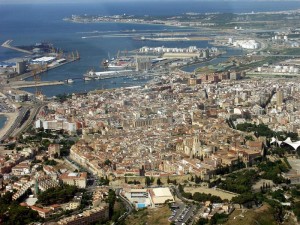Article available also in Spanish

As part of a delegation from the European Parliament, I?m hurrying to Spain for a working visit. Our purpose is to see industrial centers, universities and centers of excellence and to become acquainted with the development of their objectives and expectations. I wish to take their experiences back with me to the European institutions.
—
The Catalan city of Tarragona remains unknown to many. We all know of Barcelona as a former Olympic city, with Freddie Mercury and Montserrat Caballé singing the national anthem. We know the Sagrada Familia and Park Guell. It cannot be denied that Barcelona is beautiful.
We have always been fascinated by Spanish history and culture. The spirit of Christopher Columbus is still visible in today’s youth. The diversity of Spain?s regions touch us at every step. Even now, after having visited Tarragona myself twenty years ago to see Columbus? research boat.
Tarragona is a city not far from Barcelona. It is less known to us, but very well known by business. Especially the chemicals industry, as Tarragona has a world-renowned centre of chemical industry, located on roughly one thousand hectares of land. Tarragona is also probably known to the Port of Koper, as it boasts the fourth largest port in Spain. Despite the severe economic crisis, the city has booming tourism, recording over 34 million overnight stays last year. Perhaps the city is also known by our universities and centres of excellence, as they have built a skills development centre focusing on the needs of the people and market, despite the relative size of the city itself. Tarragona even has a touch of the Olympic spirit as the future host of the Mediterranean Games in 2017.
It could be said that the city?s development is slightly controversial. They are developing a port that is seeing food exports grow tremendously, alongside large exports of chemicals. There are even ambitions to develop the port for cruise ships. Archaeologists have discovered Roman ruins in the town, which alone attracts many tourists.
Personally, I would find it difficult to live next door to such a large chemical plant. And yet, politicians, civil society, knowledge centres and business have found a way to communicate. This dialogue has given the city long-term development, local jobs and co-existence with potentially controversial forms of activity.
Everyone is preparing to apply to calls in the next European budget framework, and in particular for the funds in Horizon 2020. Their goal is to open up, export their knowledge and products, and construct the Mediterranean corridor. I have not heard anyone talk about a new uprising, or ask for the resignation of the Prime Minister or the Government.
Only in the Wall Street Journal do I read that Spain?s center-right Prime Minister Mariano Rajoy is suspected of acquiring more than 200,000 euros in unknown property. The similarity with Slovenia and our Prime Minister is most likely completely coincidental. A prime minister carrying out necessary reforms to bring borrowing under control is suspected of acts of corruption. All of this has already been written, read, heard and seen. Or Perhaps we are witness to an emerging pattern of the disqualification of right-wing leaders and politicians? Nevertheless, in Spain there is a visible difference in that people are still focusing on development. Just recently when I was visiting an elementary school, I was very surprised, as the political debate has already made it into elementary schools.
It is true that this part of Spain, which is generally better off, they have “only” 14% unemployment. Despite the fact that Spain as a whole is in an unenviable position, the motivation of the people that we met was incredible. It inspired all of us with unbounded optimism.
Tarragona shows us how to work together to fight for the preservation of jobs and the development of new opportunities. The University focused on modern topics such as health in relation to food, culture in relation to the development of tourism, and the economy founded on chemistry and energy. The University is focusing on the needs of the people today and their future needs. We can be critical of the impact of the industry on the environment. However, they have established a balance and uniform approach to solving financial problems. This comprehensive approach can serve as an example of best practice and act as a role model for the development of individual regions in Slovenia. Of course with the less chemicals industry as we don?t have the capacity for much anyhow.
Under the leadership of the Chair of the Committee on Industry, Research and Energy, Amalia Sartori, we?re now travelling to the Spanish south.
Zofija Mazej Kukovič MEP

